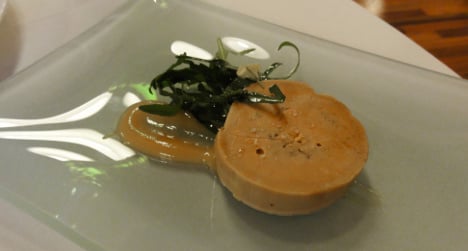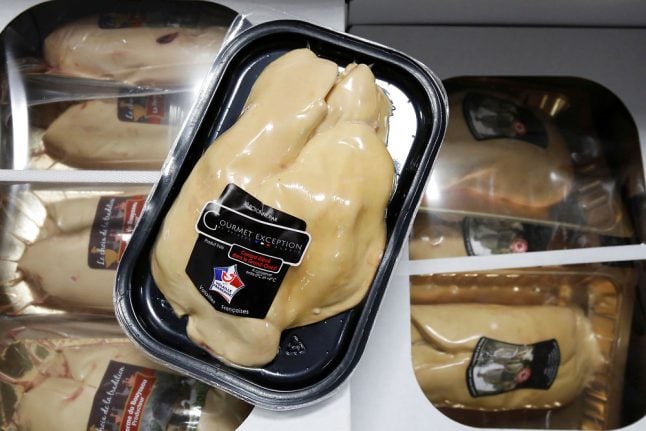California might have banned its production and it may also be outlawed in Israel, but foie gras is still pretty much revered in France.
Or so we thought.
A poll published on Tuesday, however, suggests that actually, foie gras is not universally scoffed down in every French household .
And it's not the fact that the gourmet goose liver is laden with calories that is turning the health-conscious French off it, but the highly controversial process by which it is made.
Foie gras is mostly made by force-feeding ducks and geese to fatten up their livers in a process known as "gavage", which those against it say is tantamount to torture.
This has given foie gras a bad name abroad, but its popularity in France has rarely been in doubt.
But according to a new poll, almost one third of French people (29 percent) now refuse to buy foie gras for “ethical reasons linked to animal suffering”.
The Opinion Way poll commissioned by the French animal rights association L214, also suggests the French are fairly evenly split on whether the production of foie gras through force-feeding should be banned, with 44 percent in favour and 55 percent against prohibition.
There is clearly, however, still a hard core of Gallic foie gras-lovers out there, with 22 percent of respondents saying they prefer foie gras that has been produced by force-feeding the animals.
France’s Rural Code states that foie gras must be made by force-feeding, but French producers – aware that public opinion, at least abroad, is hardening against the delicacy – have been looking at alternative methods of production.
In November, French celebrity chef Joël Robuchon ditched his foie gras supplier after animal rights activists raised questions about its practices.
And in October, animal rights organizations heralded a victory when online retailer Amazon banned the sale of foie gras on its UK website.
Campaign group Viva! said the move followed pressure by the organization, which earlier this year presented the US-based online retailer with "evidence of the abject suffering" caused by foie gras production.
A petition against the sale of the delicacy was also signed by more than 10,000 Amazon customers and Viva! supporters.
The decision was, however, slammed by the French government.
"I regret Amazon's decision," Guillaume Garot, France's minister for agribusiness, told AFP.
"I once again want to point out the efforts made by French producers over the years to maintain real product quality while respecting the animal's well-being," he said.
Garot said he was nevertheless "very confident" about the future of the foie gras industry, which employs nearly 100,000 people directly and indirectly in France.
"I defend this sector because of jobs but also because of a certain idea of gastronomic heritage," Garot added.
However, if more and more French people find foie gras hard to swallow, this "gastronomic heritage" may one day prove to be a thing of past.
What do you think? Will the French ever fall out of love with foie gras?



 Please whitelist us to continue reading.
Please whitelist us to continue reading.
Member comments